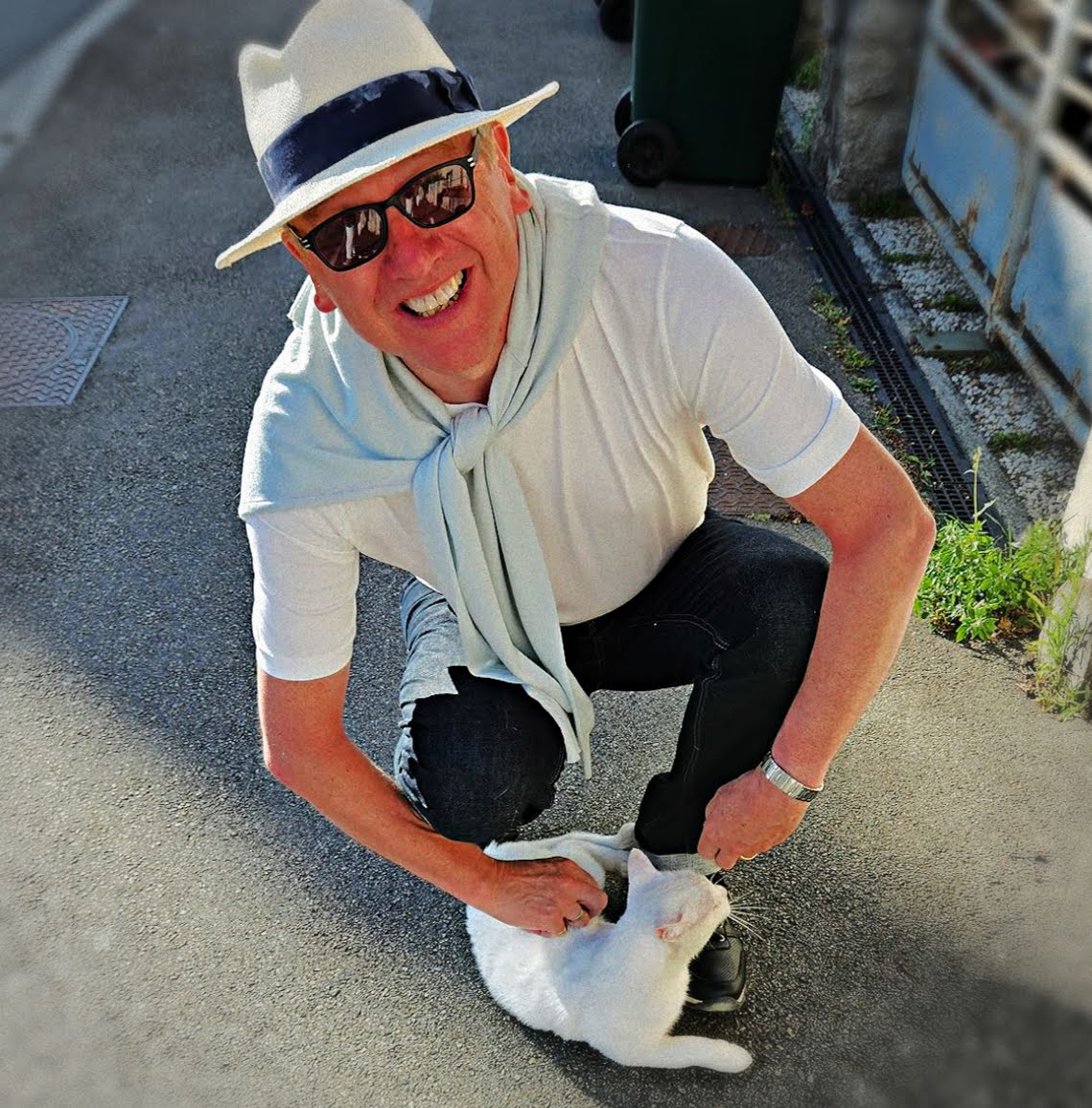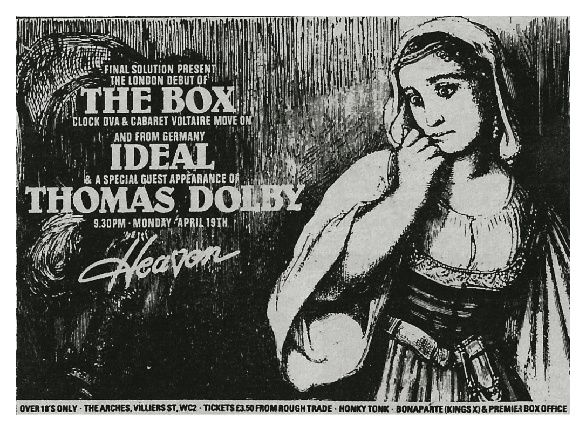
“Fancy a drink?”
One of the many things that I like about ‘Stardust’, Michael Apted’s 1974 film about the rise and fall of rock star Jim MacLaine, played by David Essex, is Adam Faith’s character Mike Menary. Mike is Jim’s loyal road manager, fixer and factotum. With that apparently innocuous invitation, “Fancy a drink?” Mike can make characters disappear. People who have been obstructive or have outlived their usefulness - be they concert promoters, early benefactors or surplus-to-requirements band members. Whatever it takes to ensure that Jim’s path to superstardom is unimpeded.
The Box doesn’t have a Mike. Indeed, The Box doesn’t have any kind of manager. Keenly independent, we’re innately suspicious of anyone who might want to turn us into Ultravox. Which is principled and admirable, to a point. For when it becomes apparent that recently-recruited frontman Ken - he of the lovely quiff but iffy vocals - isn’t going to make the grade, no-one wants to be the one to sack him. Us being easy-going, artistic types, we’re squeamish about face-to-face confrontation. After much debate, with the clinching argument being that Ken was his idea in the first place, it falls to bass-player Terry to ask the hapless lad if he “fancies a drink?”
Six months’ worth of rehearsals down the drain. Do not pass Go, do not collect £200.
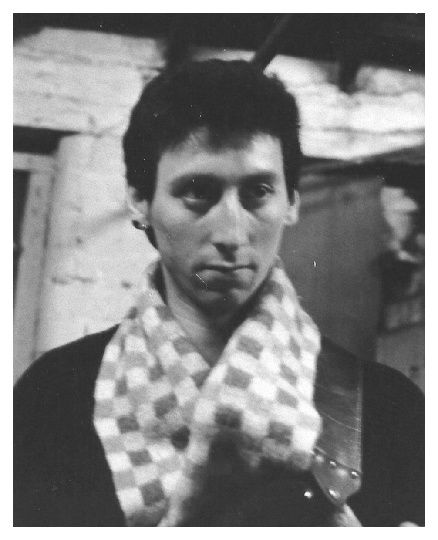
Also going through changes are Cabaret Voltaire. When Chris Watson, sitting in The Beehive on a Sunday night with his smashing, soon-to-be-married partner Margaret, tells me he is leaving the Cabs to go and work at Tyne Tees Television**, I nearly choke on my dry-roasted nuts. He must be mad. The band are riding high on the critical acclaim for their new album, ‘Red Mecca’, which has been released on Rough Trade, one of the coolest record labels in the world. I'd love The Box to be on Rough Trade. Why would you put all that aside to go and do sound for ‘Northern Life’ in a Newcastle telly studio?
Box guitarist Paul lives in the same suburban house as Mal from the Cabs. 217 Upperthorpe is a handsome, detached abode near the top of the steep hill that links Infirmary Road to Crookesmoor. Given its Sherpa-friendly altitude and lack of central heating, this striking Victorian pile is cold - goldfish-bowl-freezing-over cold - in the winter months. Particularly the kitchen, which feels like it’s twinned with Spitsbergen, once the clocks have gone back. Close to the university, the area is popular with students; so, like many other nearby properties, the house is populated by young men drawn to Sheffield for its cheap beer, cheaper buses and flourishing music scene.
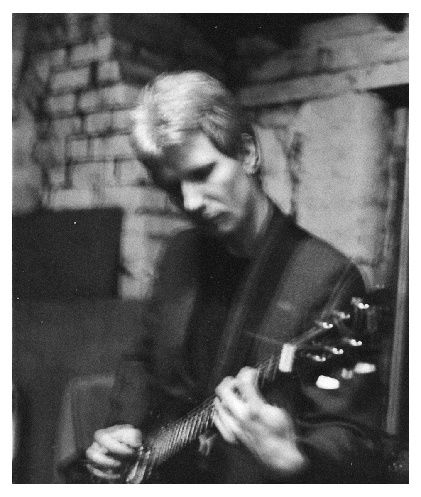
217 is known to its residents and friends as the ‘Hula Kula’, after the B-side of Roxy Music’s 1973 single ‘Street Life’. Also living there are Ron and Al, two lads from the Northeast, and Mark from the Home Counties. The latter three have a band called Hula, named after their abode. Also resident are two cats - Morticia and Greta - and a ghost called Henry.
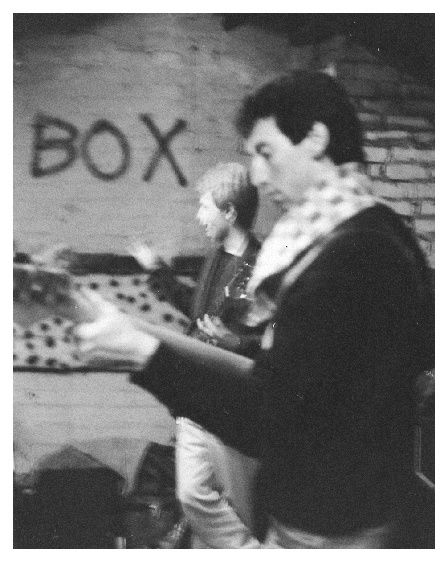
It’s a December night when we invite Mal down to see The Box rehearse. The Cabs' studio space at Western Works is positively salubrious compared to our ramshackle workshop, which is reached by climbing two flights of rickety wooden stairs and traversing slippery duckboards nailed to a sloping roof. Mal likes the herky-jerky, het-up racket we make, and offers to help out on vocals. Nothing permanent, more like a footballer going out on loan because he wants more game-time, even if it means dropping down a division.
I’m delighted. Band practice is fun again. I can look up from battering my drum kit and see Mal – Stephen Mallinder of Cabaret Voltaire - hissing and snarling into a mic just a couple of feet away. The studio’s old, convexed brick walls, seemingly bonded by soot and swarf, soak up our rumpus. For his part, Mal is enjoying the change of scenery. Once he’s worked out that singing over our hectic music is like trying to plant a flag on ever-shifting sands - the place you thought was the start has somehow moved - he’s happy to be mixing it up in the melee with Paul and Charlie, harrying and stinging, a mosquito in the maelstrom. Mal’s rhythmic vocal style, which always sounds to me like he is passing top secret information through tiny gaps in the Berlin Wall, takes on an aggressive rasp which suits The Box’s hurly burly.
The other challenge for Mal is the lyrics. Cabaret Voltaire have a track on ‘Red Mecca’ called ‘A Thousand Ways’, which lasts for 10 minutes and 25 seconds. The song length exchange rate in January 1982 is four Box songs for one ‘A Thousand Ways’. Cue Mal having to produce Hunter S. Thompson-like torrents of screed, as new songs emerge with titles like ‘Slip and Slant’ and ‘Hazard (Rules Your Movement)’.
By February, we feel ready to play in public. The Marples pub overlooking Fitzalan Square has been hosting gigs in its upstairs function room for a few years. I played my first gig with DVA there in the summer of 1979. With The Leadmill currently closed awaiting funding, and The Limit now attracting a trendy New Romantic crowd, The Marples, described by one local sage as, “The kind of place you wipe your feet on the way out.”*, is back in favour with local bands and punk rockers. Both Crass and the U.K. Subs played here recently.
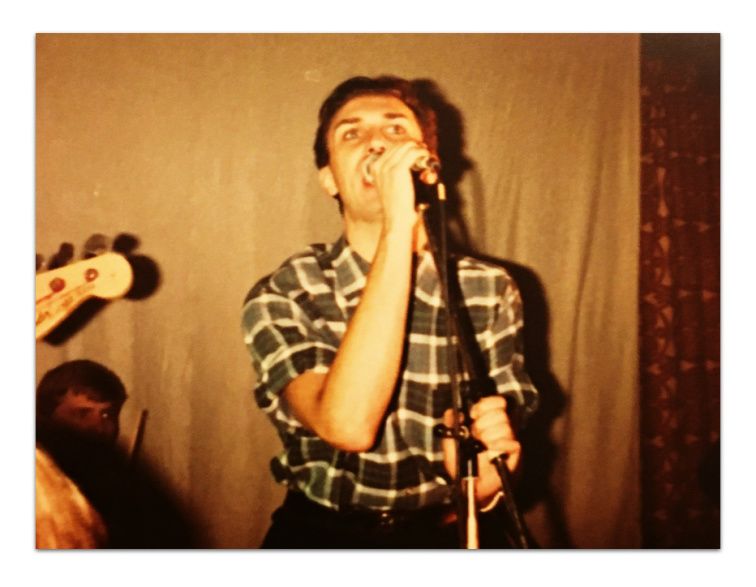
The room has been reconfigured since I last played here; there’s a low stage now. Having been warmed up by eager tyros Chakk, the audience, with lots of familiar faces dotted about, regards us with a mixture of curiosity and expectation. We go in hard. Eleven songs in about thirty minutes: one instrumental for Mal to catch his breath, no chat, no gaps, no encore. I’ve come up with a slogan which aims to capture the essence of what we’re about.
“IT’S NOT THE WAY IT HOLDS TOGETHER, IT’S THE WAY IT FALLS APART.”
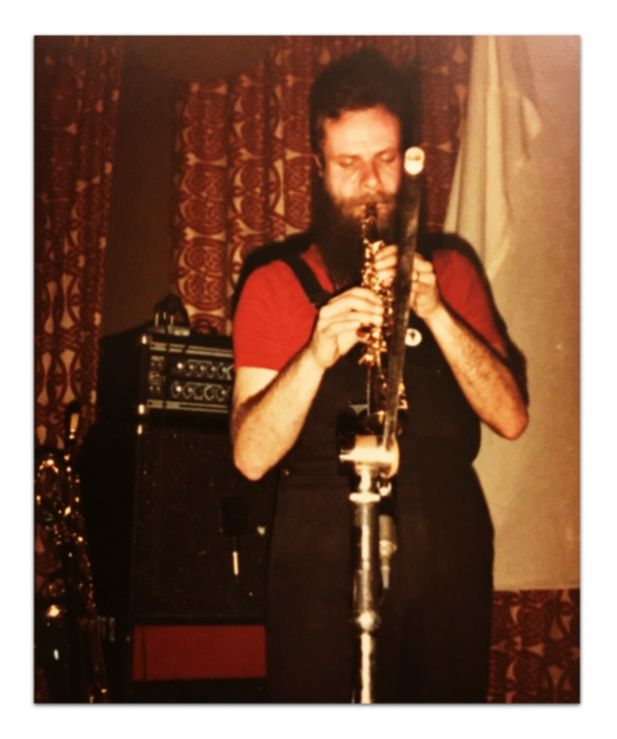
I think it sounds good. That said, if I were pushed, I couldn’t tell you exactly what it’s supposed to mean. Something about teetering on the edge of collapse and trying to capture that moment, I reckon. Anyway, I’ve sneakily printed fifty sheets of A4 at work, with this manifesto lovingly worked up in Letraset. As we leave the stage, I toss them out into the throng.
Rock theatre.
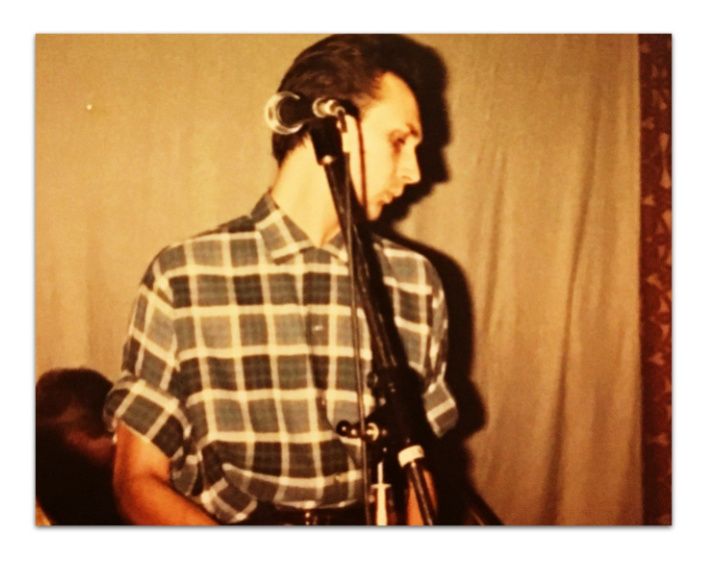
Mal then takes off for a trip to Japan with Cabaret Voltaire for some live dates. Richard and himself now joined by Hula drummer Al. To me, 21 years old and still no passport, this seems incredibly exotic and intrepid.
Then something very strange happens between Mal’s departure and his return in April.
A war starts.
Who goes to war with Argentina? Football, cows and tango. It’s so surreal, it would make a good sketch on ‘Not The Nine O’Clock News’. A dispute over an archipelago 8,000 miles away, where penguins and sheep outnumber the human population of less than 2,000 souls.
Who goes to war with Argentina? A brutal government responsible for swingeing spending cuts, manufacturing industries in decline and high unemployment. A prime minister unpopular within her party and behind in the opinion polls. Margaret Thatcher.
The Falkland Islands war dominates the news every day. But it’s a long, long way from home, and once the Argentine army has occupied Port Stanley and some outnumbered Royal Marines have been captured, nothing much is happening, while the task force is being readied. I wonder if ‘The Phoney War’ of 1939-40, which we studied at school, was like this? It’s just there, along with Bucks Fizz at number one and Ipswich Town challenging Liverpool at the top of the league.
The Box and Mal head down to London to play at Heaven. Paul, Charlie and myself played herewith DVA, when we rumbled and howled in front of a cellarful of goths, mostly there for headliners Bauhaus. The dark catacombs, S&M rooms and members-only recesses tucked away in this gay club under the arches of Charing Cross station have lost their surprise for us.
We’re headlining tonight. Could The Box top the bill at a London venue of this size and stature without Mal from the Cabs? Doubtful. The promoter certainly thinks not. “Clock DVA & Cabaret Voltaire Move On” declare the adverts for the gig. Back up in Sheffield, Richard Kirk is not impressed.
Also on the bill are Liverpool band Send No Flowers and synth-boffin Thomas Dolby, whose debut single ‘Europa & The Pirate Twins’ I liked and bought on 12” from GT News in Hillsborough for 99p. One-man-band Dolby is playing in a different part of the club; hemmed in by a variety of keyboards, oscillators and blinking circuitry, he seems oblivious to the thirsty crowd at the bar. Which, in turn, pays little attention to the bloke in specs with all the presence of a British Telecom engineer who's been called out to rewire an errant telephone junction box. Martin Fry is here, just nine weeks away from the life-changing release of ABC’s ‘Lexicon Of Love’ album.
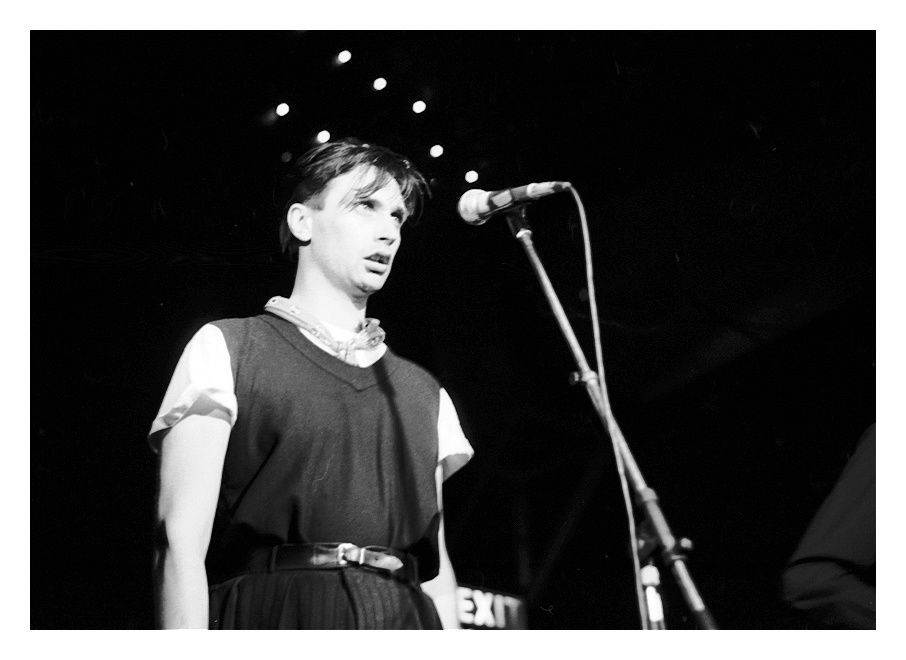
Compared to the DVA and Bauhaus gig here two years ago, this is a whole lot more enjoyable. True, it’s not as busy, but at least the people are here to see us this time. Free from bass guitar duties, Mal does his knee-bobbing, head-nodding dance behind his mic. Either side of him, Charlie’s sax and Paul’s guitar quarrel then concur. Behind them, Terry and myself stoke the furnace. Twelve songs this time, thirty-five minutes. No chat, no gaps, no encore.
The following week brings glowing live reviews in both the NME and Melody Maker. We’ve made a splash. However, Cabaret Voltaire have UK tour dates coming up with Eric Random, so Mal’s work here is done. A maritime pilot, he has launched the good ship Box and guided it into open waters. We owe him several drinks: but not the Mike kind.
*Marples quote from Simon38 on the Sheffield History website.
**Chris Watson is, of course, now recognized as one of the leading sound recordists in the world, particularly in the field of wild life and the natural world. I think the move worked out pretty well for him.
Thank you to Mal, Paul Widger and Charlie Collins.
Particular thanks as always to Nigel Floyd.
